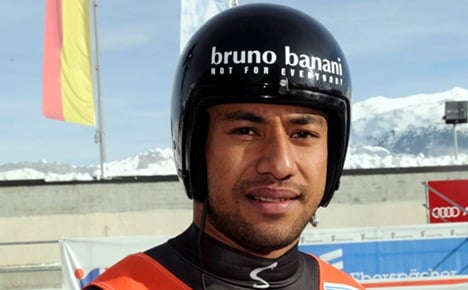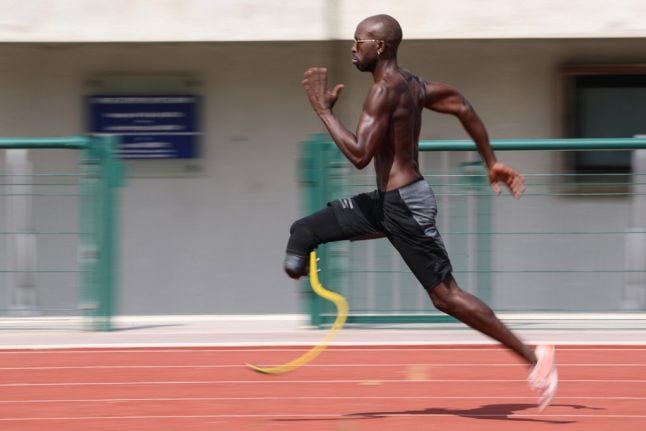The latest edition of Der Spiegel magazine reported the 24-year-old Bruno Banani, who is known for his “Coconut Powered” catchphrase, is really named Fuahea Semi.
And though he is indeed Tongan and is training with the German national luge team, his story – that he is the son of a coconut farmer with long-shot dreams of competing with the world’s best lugers – was a fabrication by German guerilla marketing firm Makai Europe, the magazine reported.
While he his now sponsored by the Bruno Banani underwear firm, Semi is actually the son of a cassava farmer and was recruited during a casting session in Tonga after which the PR firm convinced the Tongan government to issue a passport for him in his “new name.” He was then shipped off to Germany to begin training for this February’s Luge World Championships in Saxony, Der Spiegel reported.
At the same time the Bruno Banani underwear company promoted him on their website, and got great PR, including a recent report on the ZDF television network.
Mathias Isle, one of Makai’s executives, told Der Spiegel that the idea came about because the company was desperate for customers and wanted to do something to get them on the map.
“We wanted to prove to the world that we have good ideas,” he said.
He did not immediately respond to a request for comment from The Local.
It is not entirely clear how Makai is connected to the Bruno Banani company or whether managers there knew of the fraud.
Company head Jan Jassner said he hadn’t known but pledged that he remained on Banani’s side as he continues to learn how to luge.
“We will continue to support Bruno,” he said.
The Local/mdm





 Please whitelist us to continue reading.
Please whitelist us to continue reading.
Member comments